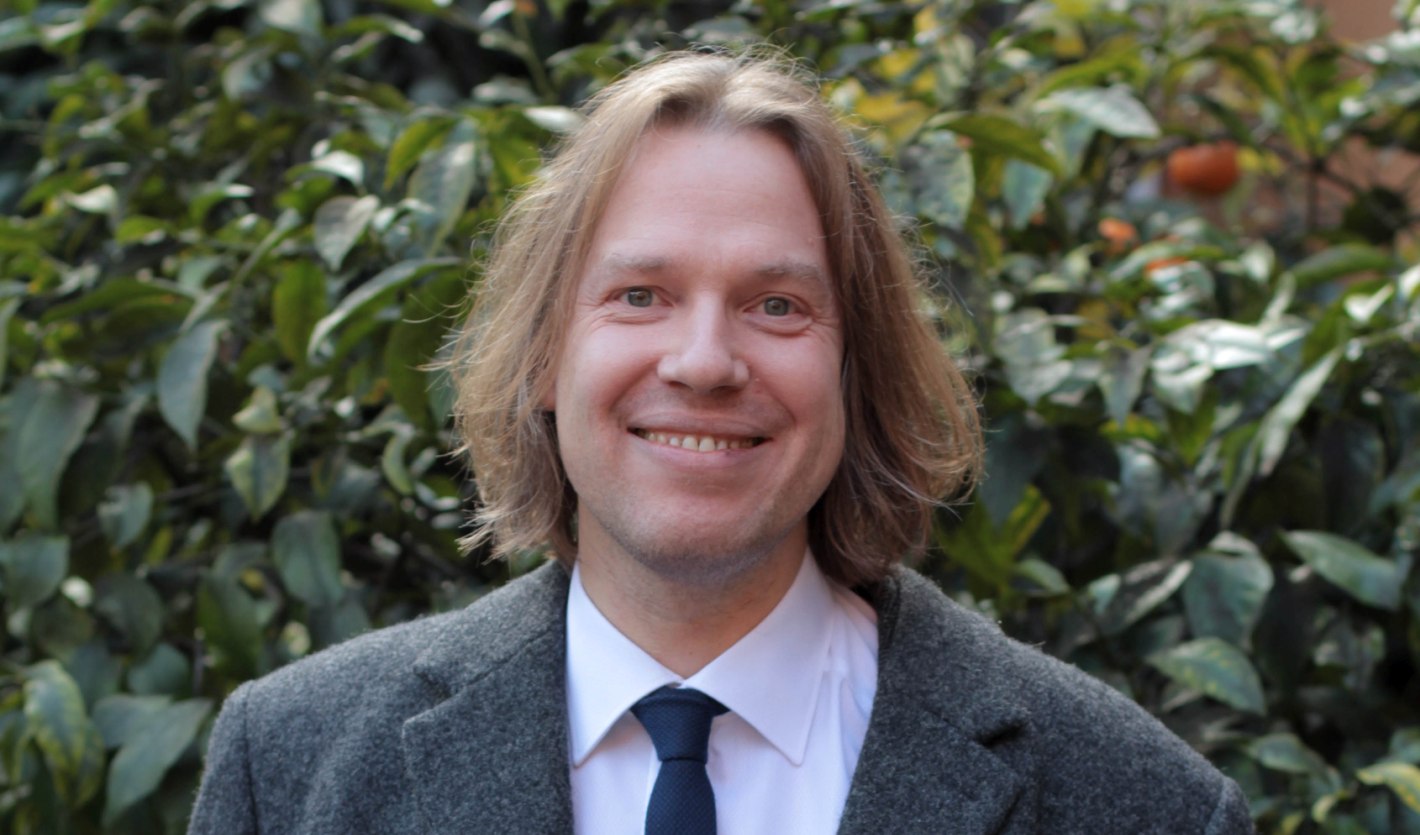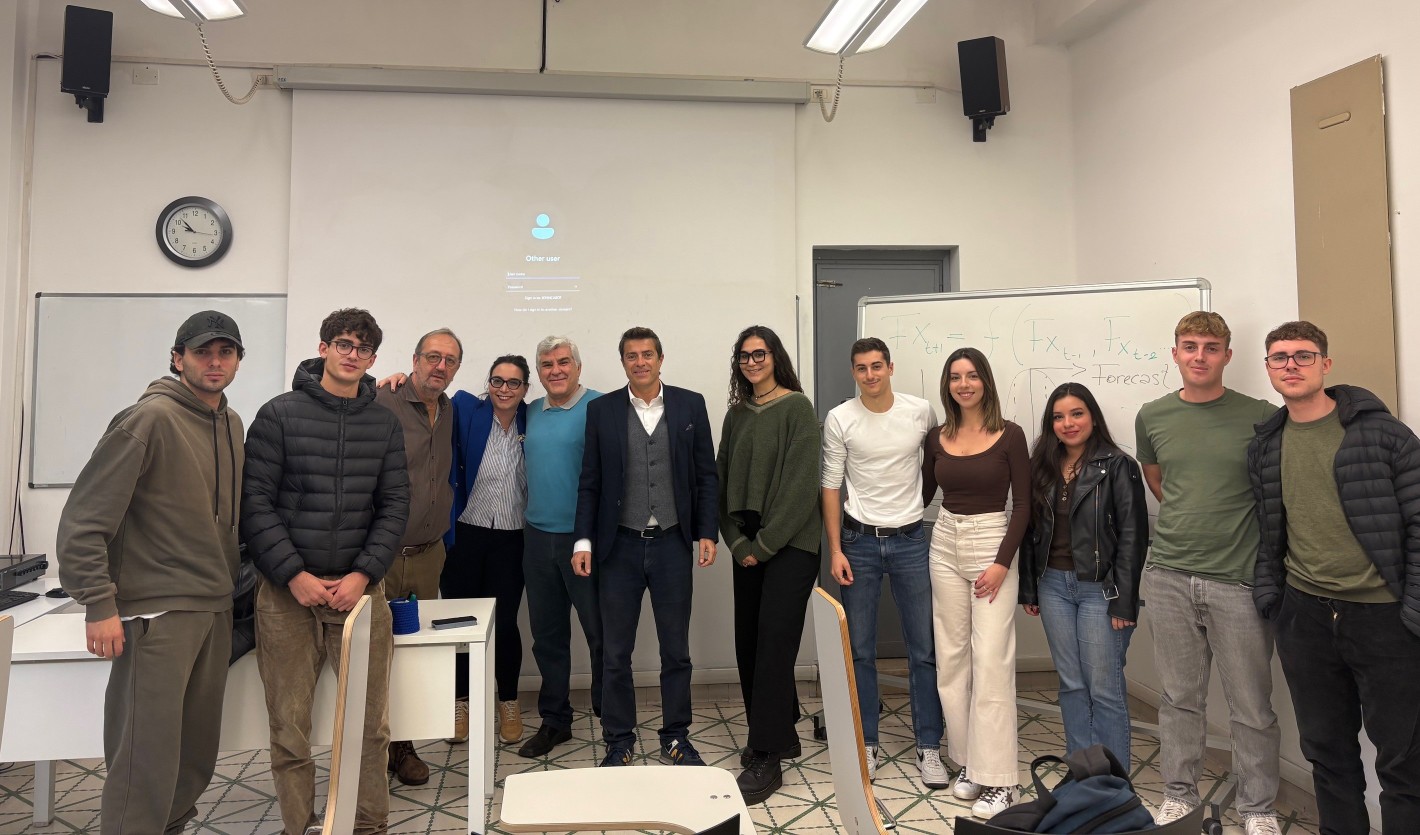In August 2025, the Italian newsmagazine L’Espresso dedicated a special issue entitled “È già futuro” (“The Future is Already Here”) to the themes of innovation and technological change. Among its featured contributions was the essay “Transumanesimo. L’identità aumenta” (“Transhumanism. Identity Expands”), written by philosopher Stefan Lorenz Sorgner, professor at John Cabot University and a world-leading representative of the transhumanist movement.
In his article, Professor Sorgner argues that transhumanism is not merely a speculative philosophy of human enhancement, but a political and cultural paradigm shift that is already reshaping global society. Once dismissed by Francis Fukuyama in 2004 as “the world’s most dangerous idea,” transhumanism has since moved to the center of debates about democracy, capitalism, identity, and the very definition of what it means to be human.
At its core, transhumanism envisions overcoming the biological limits of human beings through science and technology, with the goal of extending and enriching life. But as Professor Sorgner demonstrates, the movement has never been confined to the laboratory. It has become a field of philosophical contention, cultural imagination, and political strategy.
Fukuyama’s critique in Foreign Policy (2004) sparked an intellectual debate that quickly spread beyond academia. Dan Brown’s bestselling novel Inferno (2013) then brought the concept to millions of readers worldwide. By the 2020s, transhumanism had moved decisively from theory to practice, attracting the attention of entrepreneurs, policymakers, and investors.
The turning point for transhumanism’s political entanglement came in 2024 with Elon Musk’s creation of “America PAC” to support Donald Trump, backed by billionaire investors and companies like Palantir, linking the movement to power, media, and economic control.
The U.S. has since become the primary political theater of transhumanism: Musk and Peter Thiel promote a technocratic optimism—Musk through Neuralink, AI safeguards, and space colonization, Thiel through anti-aging research and “longevity cities”—while Steve Bannon counters with fierce anti-transhumanist rhetoric, portraying it as elitist, dehumanizing, and corrosive to faith and culture. This clash has fractured American conservatism between those who see technological transformation as national renewal and those who view it as a civilizational threat.
Globally, the divide extends to Russia and Brazil, where figures like Alexander Dugin, Patriarch Kirill I, and Olavo de Carvalho denounce transhumanism as a dangerous symbol of Western modernity, liberalism, and cultural decline, forming an international coalition with Bannon in defense of tradition against radical change.
The politics of transhumanism are especially visible in the field of health and longevity. Professor Sorgner highlights how transhumanist thinkers and investors now treat aging as a disease to be cured, not an inevitability. Initiatives led by figures like Buterin have created experimental hubs in Montenegro, Honduras, and Thailand, where biotechnology and anti-aging research are being tested on unprecedented scales.
These innovations raise critical political questions: will life-extending technologies deepen inequality, becoming privileges of the wealthy? Or will they be integrated into public health systems as universal rights? The struggle over longevity mirrors older debates about welfare and healthcare but are now projected onto the very future of human biology.
Sorgner emphasizes that transhumanism also redefines governance. As biology and technology converge, questions of control and responsibility become unavoidable.
A cochlear implant regulated by a smartphone, or a genetic modification preventing disease, is not simply a medical device—it is a political artifact. Identity itself becomes entangled with technological systems, raising urgent questions about corporate power, privacy, and state regulation.
The governance of enhancement is therefore inseparable from the governance of democracy. Who owns the data produced by neurochips or bio-implants? Who sets the standards for genetic interventions? These are not merely technical issues but matters of political sovereignty and human rights.
Professor Sorgner concludes that humanity will not remain as it is. The risks of extinction—from climate crises to technological accidents—are real. But so are the opportunities. For the first time, humanity can transition from natural selection to conscious selection, deliberately shaping its own evolutionary trajectory.
This marks not only a scientific revolution but a political one. The decision on enhancement, longevity, and identity will be made by societies, governments, and institutions. The question is not whether transhumanism will shape the future, but who will shape transhumanism: tech elites, populist resisters, democratic institutions, or global coalitions.
In “Transumanesimo. L’identità aumenta,” Professor Sorgner places transhumanism at the very heart of today’s political struggles. What began as a philosophical speculation is now a battlefront in global politics, dividing nations, ideologies, and even factions within the same governments.
According to Professor Sorgner, stakes are nothing less than existential: the definition of humanity, the extension of life, and the distribution of power in a world where technology and biology are increasingly inseparable.












